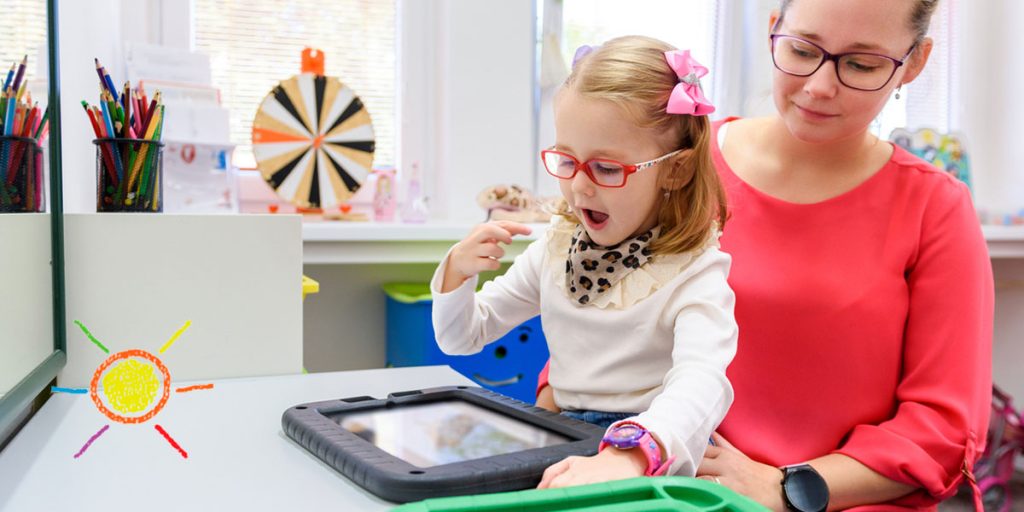For children with autism spectrum disorder (ASD), many things that might come naturally to other children are very slow to develop. Certain life skills that we may take for granted in our everyday lives develop into seemingly insurmountable challenges for kids with ASD, especially when it comes to social skills, learning, and self-sufficiency skills from concrete things like picking out and putting on an outfit, to more abstract concepts like managing and counting money.
Some children are particularly adept at one or several of these things, but struggle with others. Some children are not particularly adept at any of these skills but do have other strengths. Knowing what your child’s greatest strengths and their greatest weaknesses are is important, especially for predicating how they might struggle with certain tasks as they get older.
That being said, it’s important to note that nothing is necessarily set in stone. Through early intervention, many skills that are slow to develop can still be taught and ingrained in a child with ASD. While your child may be behind the curve, with the right help, they can still adapt.
Knowing Your Child’s Strengths and Weaknesses
Children with ASD tend to have a preferred way of learning. They often seem particularly adept at discovering and understanding the world around them within a specific context, often through a relatable or interesting topic. In this sense, if their best and most reliable way of absorbing information and instruction is through a familiar or interesting context related to something they enjoy doing, then they may be adept at thinking based on interests.
They may also be visual learners. It’s important to note that not all are, as some might have previously believed, but just as with neurotypical children, some children with ASD learn better through visuals. In this case, they will often learn much better if the information they absorb is presented visually, through visual analogies and concepts, rather than through words or hearing. They may struggle to get through a paragraph, but they might be particularly adept at spotting a specific shape within a complex drawing or catching onto concepts much faster if they are presented via visual analogy.
Some children on the spectrum like rules and adhere to them readily. It might soothe some anxiety or give them a step-by-step, structured system by which to understand and decipher more complex interpersonal concepts. They might learn better if things are first broken down into rules and explained on a step-by-step basis.
Understanding how best to engage with your child is important. Developmental assessments and professional insight are important here, as proper testing can help behavioralists and psychiatrists give you a better understanding of where your child excels, and where they struggle.
Repeat Methods from Therapy at Home
If your child is learning to cope with a certain problem at school or during therapy, they may not necessarily bring that coping mechanism back home. They may strongly associate a specific ritual or activity with a specific environment, and as such, may not think to immediately repeat specific actions that helped them understand or better communicate with their peers, teachers, or therapists, at home.
As such, staying in touch with their educators is important, as it is often necessary to continue to reinforce lessons learned at school and at therapy while at home. Understand what your child responds to best and continue to repeat it within your own four walls. When it comes to intervention and teaching basic skills, repetition is critical.
ASD and Social Skills
Humans in general possess many skills, but for the context of teaching children with ASD, these skills can be largely broken down into personal and interpersonal skills, or in other words, life skills and social skills. Important social skills include:
- Learning about holding a conversation, timings, paying attention, and staying on topic.
- Learning to manage one’s own emotions in front of others, understand and empathize with how others feel, and discuss feelings.
- Learning to devise rules of engagement during play, understanding fair play, taking turns, and sharing.
- Learning to cooperate, minimize conflict, and make decisions under stress from others.
The earlier it’s established which of these skills your child struggles with the most, and how best to address them, the better. Many techniques exist to help children with ASD learn how to develop better social skills, from introducing specific rules and examples in class and at home, to roleplaying, video modelling, storytelling, and practicing play.
Just as mentioned earlier, children with ASD may struggle to carry over lessons learned in one environment to the next, so learning a specific social skill in interacting with siblings at home may not necessarily mean they automatically apply the same skill at school.
ASD and Life Skills
Non-interpersonal skills are just as important for functioning, especially later in life. Children on ASD may be slower to develop basic life skills such as brushing one’s own teeth, putting on clothes, and taking care of certain chores. Not all children can develop to learn these skills, but in certain cases of ASD, children can be taught to develop these skills over time. They can be largely categorized into four major categories:
- Executive Functioning: this includes skills related to management and organization, planning, and the like. Concepts such as meal prep, finances, assessing and creating a to-do list, planning the groceries, and so on.
- Personal Care: this encompasses skills directly related to hygiene and physical management, as well as certain self-care skills, including following an exercise regimen, skincare, nutrition, and dealing with illness. Another facet of personal care is mental self-care, including stress management and developing a healthy work-life balance, understanding how to manage both work and hobbies.
- Practical Living: practical living skills include cleaning, washing up, doing the laundry, cooking, fixing broken equipment, changing a lightbulb, shopping, doing the groceries, opening a bank account, withdrawing money from an ATM, navigating a map, and more. These are also skills we might refer to as “adulting”.
- Jobs and Employment: job skills are the most complex, as they encompass both what it takes to land a specific job (i.e. occupational skills), as well as certain skills associated with maintaining employment or managing one’s own business (from being a good employee to business management skills). These are the least likely to be relevant to children but become more important as they enter their teenage years.
Cases of ASD Vary Wildly
Autism can be very complex. No two cases are entirely alike, and while there are shared characteristics between people on the spectrum, there are also plenty of developmental differences. Some kids excel in picking up social cues and engaging with other children but begin to struggle with their social skills later on in adulthood. Some need serious intervention in order to grasp and learn basic skills of self-regulation and self-care but do eventually learn how to become autonomous individuals.
However, there are also cases of people who cannot function entirely on their own and do need lifelong assistance. There’s no way to know how a child will turn out upon diagnosis, but an early diagnosis and early intervention can give a person their best chance at becoming independent and learning what they need to learn to function on their own, and adapt to the strange and difficult world around them.
Regardless of where your child is on the spectrum, chances are that one or more of the skills noted above presents a serious challenge for one reason or another. If you need help teaching your child life and social skills, then seeking professional help may be necessary. Occupational therapists and other specialists can be important lifelines when learning how to communicate and effectively teach a child with ASD, but it’s also important to manage and grow other support systems, and ensure that your child is going to a school environment that is properly equipped to address his or her needs.


